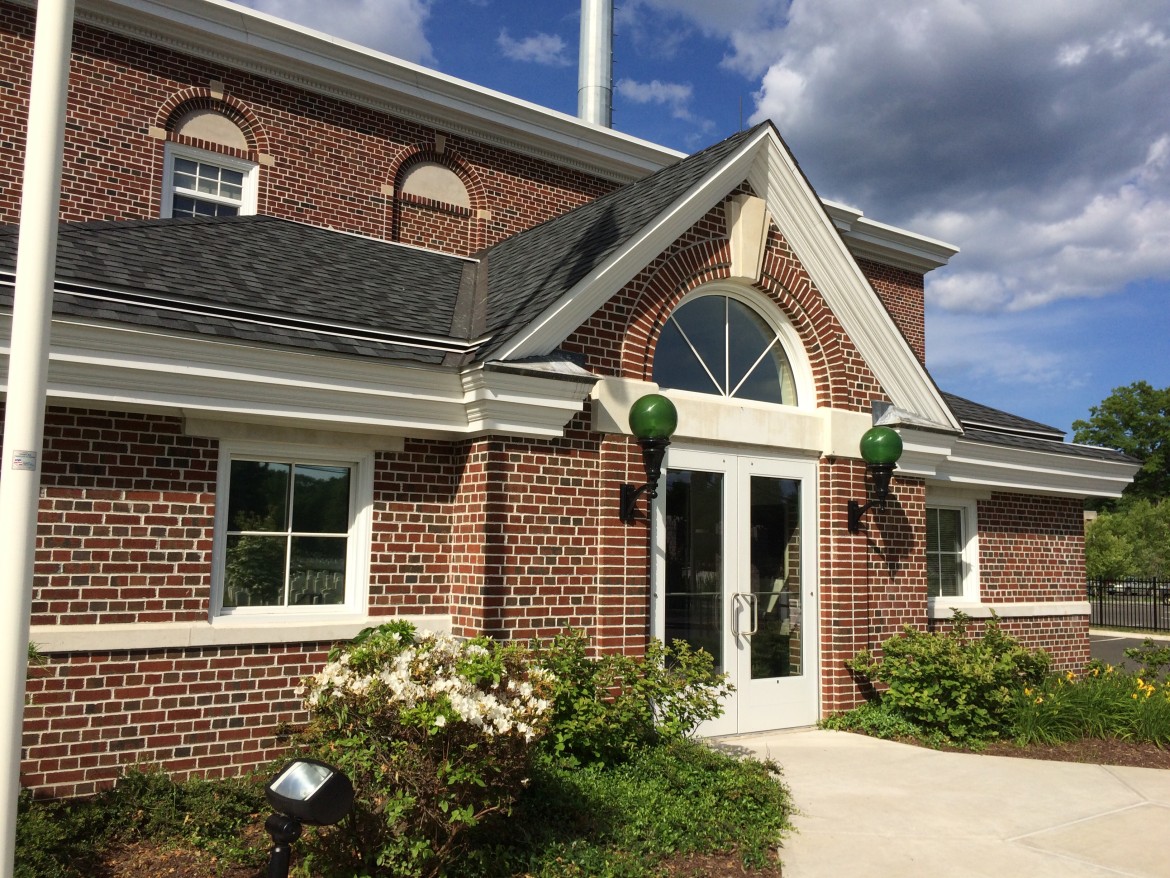Police Chief Duane Lovello says the department again is looking into buying body cameras for all police officers, a proposal that was almost made in last year’s budget deliberations.
“We are exploring potential implementation of body cameras, as is every other department in the state that doesn’t have them,” Lovello told a recent meeting of the Darien Police Commission.
The cost of getting body cameras is not so much in the devices themselves — they cost roughly $300 or $400 apiece — but in storing and retrieving the video records, which could run up to $75,000 or $80,000 a year, he said.
The state attorney general wants any body-camera videos stored up to four years, because civil lawsuits can have a filing deadline, in some circumstances, that long after an incident (for the most part, he said, the deadline is three years).
“We did have it [a body-camera program proposal] all fired up for last year’s budget [deliberations] and pulled it out at the last minute,” Lovello said. He didn’t say why. One advantage of waiting a year is that the technology has improved over the past 12 months, he said.
Police departments around the country have been looking into using body cameras for patrol officers after the controversy about the shooting of Michael Brown by a police officer on Aug. 9, 2014. Riots followed, and many protestors, chanting “Don’t Shoot! Hands up!” said Brown had been shot with his hands already raised. Much later, an independent federal investigation concluded that wasn’t true.
Some experts have said a video record from an officer’s body camera might have made clear what happened much earlier, in that case and in others around the country where the actions of police officers were questioned after civilians died.
The task of storing and retrieving videos can be high, Lovello said. He pointed out that the Los Angeles Police Department, with 7,000 officers, has asked the city to allow it to hire 122 more people to take care of the records. “That just gives you an idea of how much time is involved,” he said.
Freedom of Information Act requests and requests from prosecutors and defense attorneys in criminal court cases would mean that someone in the department would find the video records, then redact parts of the recording that can’t be released by law, sometimes including recordings of victims, Lovello said. If the department has to retrieve a lot of those records, expenses would rack up, he said.
Lovello said that hiring a vendor is likely what Darien would do, although retrieving records would likely be done by Police Department staff. Records might be stored “in the Cloud” — at an off-site location accessed via the Internet.
“There are going to be times we might delete the footage,” Lovello said. For a case like mailbox vandalism, police wouldn’t expect to record a victim talking to a police officer. In general, he said, victims shouldn’t expect to have their recorded images and words made public, and in some cases that’s the law.
Darien patrol cars have been outfitted with cameras for the past four years, and when the cars return to Police Headquarters the video record is automatically downloaded to department computers.
Police would have to work out how body-camera video records would be downloaded, and that may involve an additional task for the officer — but some systems that have been put on the market in the last year allow a body camera to “sync” (work cooperatively) with a patrol car’s camera, which could then download the body camera’s records to the department’s computers with the rest of the patrol car video records, Lovello said.
Darien police have looked into how the East Haven Police Department uses body cameras, he said. Officers from that department were found to have discriminated against Latino civilians, and that department has adopted a number of policies to improve accountability as a result.
Here’s the video of the Dec. 15 Darien Police Commission meeting. The discussion about body cameras starts at about 3 minutes, 50 seconds into the video:
Darien Police Commission 12-15-15 from Darien TV79 on Vimeo.


